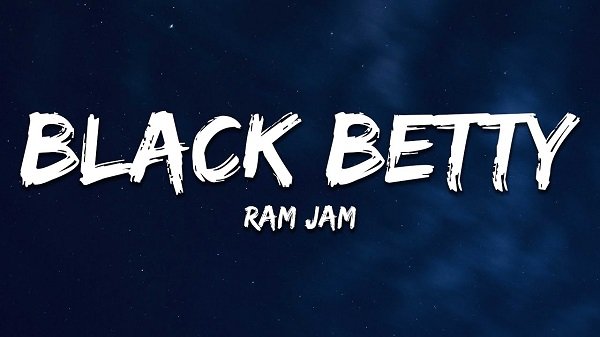
“Black Betty” is an iconic song that has captured the attention of music lovers worldwide with its infectious rhythm and memorable lyrics. The origins of the song can be traced back to traditional African-American folk music, where it underwent several transformations over the years. In this article, we will explore the history and popularity of “Black Betty,” examining its original authors, notable renditions, and enduring cultural impact.
Origins of “Black Betty”:
The exact origins of “Black Betty” are shrouded in mystery, as the song has been passed down through generations in various forms. It is believed to have originated as a work song among African-American prisoners in the early 20th century.
The lyrics were often improvised to suit the specific circumstances and hardships faced by those working in chain gangs or prison labor.
Lead Belly’s Influence:
One of the most influential figures in popularizing “Black Betty” was the renowned American folk and blues musician, Huddie William Ledbetter, better known as Lead Belly.
In the 1930s, Lead Belly recorded a version of the song titled “Black Betty” that featured his distinct vocal style and intricate guitar playing. His interpretation showcased the song’s power and led to its wider recognition within the folk and blues music communities.
Ram Jam’s Commercial Success:
While Lead Belly’s rendition of “Black Betty” gained recognition among folk enthusiasts, it was the rock band Ram Jam that brought the song to mainstream popularity in 1977.
Ram Jam’s hard-rock interpretation infused the song with energetic guitar riffs, driving drums, and a catchy chorus. Their recording reached the top of the charts in several countries and became an instant hit, introducing “Black Betty” to a new generation of music listeners.
Lyrics and Interpretations:
The lyrics of “Black Betty” have evolved and varied throughout its history. The song’s central character, Black Betty, is often interpreted as a metaphor for various things, such as a prison whip, a musket, or a troubled woman. The repetitive and rhythmic nature of the lyrics, accompanied by a driving beat, lends itself to different interpretations and adaptations across genres.
Enduring Cultural Impact:
“Black Betty” has achieved a remarkable cultural impact that extends beyond its initial popularity. The song has been covered by numerous artists in various genres, including rock, blues, and heavy metal, allowing for creative reinterpretations that showcase the versatility and enduring appeal of the composition.
Artists such as Tom Jones, Spiderbait, and Nick Cave & The Bad Seeds have all offered their unique takes on the song, contributing to its enduring legacy.
Influence in Pop Culture:
The distinct rhythm and catchy chorus of “Black Betty” have made it a popular choice for inclusion in movies, television shows, and commercials. Its presence in popular culture further solidifies its status as a recognizable and influential song.
Whether featured in action-packed movie scenes, energetic sports advertisements, or as a soundtrack to intense moments, “Black Betty” continues to resonate with audiences worldwide.
Sociocultural Significance:
Beyond its musical appeal, “Black Betty” carries sociocultural significance. The song’s roots in African-American folk music and its evolution as a symbol of resilience and defiance speak to the struggles and experiences of marginalized communities.
It stands as a testament to the enduring power of music as a medium for cultural expression and social commentary.
The enduring popularity of “Black Betty” can be attributed to its catchy melody, energetic rhythm, and the raw emotions it evokes. The song’s cultural impact is evident in its use in popular media and its ability to connect with listeners on a deep level.
From its origins in African-American work songs to its incorporation into contemporary music, “Black Betty” remains a timeless piece of musical history.
The legacy of “Black Betty” extends beyond its catchy lyrics and infectious melody. It serves as a reminder of the struggles and resilience of marginalized communities, carrying the weight of social commentary and cultural significance. The song’s ability to adapt and resonate with different generations showcases its enduring power and influence.
As “Black Betty” continues to be celebrated and enjoyed by music enthusiasts around the world, its impact on popular culture remains undeniable. Through the years, it has transcended boundaries and genres, leaving an indelible mark on the musical landscape.
Final Though
The origins of “Black Betty” lyrics can be traced back to traditional African-American folk music, where it served as a work song among prisoners. Over the years, the song gained popularity through interpretations by influential musicians like Lead Belly and rock band Ram Jam. Its infectious rhythm and catchy chorus captivated audiences, prop elling it to mainstream success.
The lyrics of “Black Betty” have evolved and taken on various interpretations, allowing the song to transcend genres and resonate with different audiences. The song’s enduring popularity, cultural impact, and diverse interpretations have solidified its place as a beloved and iconic piece of music history.


